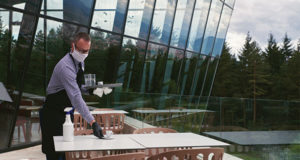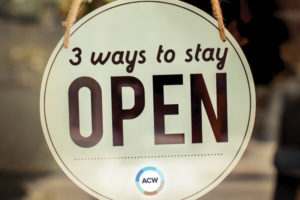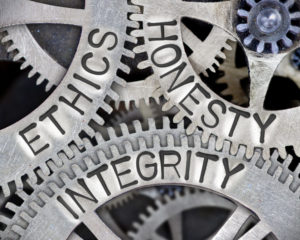Coronavirus Cleaning: How to Clean Your Workplace or Home
Wednesday, March 18, 2020 Care, Commercial, Hospitality, News- How can I prepare?
- What areas need cleaning?
- What kills the Coronvirus COVID-19?
- How can you keep your workplace (or home) safe?
There’s heaps of misinformation out there – here are some facts. And lots of them! (With sources noted below.)
And if all this sounds way too complicated? Call the ACW Team! We can support you during the Coronavirus outbreak with a range of services, including full fumigation. Email acwassist@teamacw.com.au or call or text Carolyn (Natl Sales) on 0417 346 847 for more info. (If you’re a current client, feel free to contact your Contracts Manager, or Tony (National Ops) on 0417 349 255 or Carolyn.
How do I start Coronavirus cleaning?
First of all, when disinfecting, wear disposable gloves that fit snugly, won’t easily tear or be punctured, and which protect both hands and wrist. Depending on the virus-sanitising products you’re using, you may need to wear a face mask. Unless there has been a confirmed case of Coronavirus where you’re cleaning, you won’t need full protective gear (PPE). (If there has, you will.) Wash your hands thoroughly before putting on the gloves and after you take them off. Needless to say, don’t touch your face until you’ve taken off the gloves and washed your hands!
Second of all: cleaning and disinfecting are not the same thing. You can disinfect already-clean surfaces, but disinfecting doesn’t necessarily clean the surface (unless you use a product that is specifically designed to do this). And while soap, warm or hot water, scrubbing/friction and rinsing may eliminate the presence of many Coronavirus microbes on a surface, and may kill many of them, it will NOT kill all microbes. Detergent alone is not 100% virucidal and most detergents do not kill bacteria. Detergent needs to be combined with the proper amount of friction and copious rinsing to be effective by itself if used in Coronavirus cleaning (unless the detergent also contains a disinfecting agent).
Clean and disinfect high-touch surfaces at least daily in common (public) areas (e.g. tables, hard-backed chairs, door handles and door frames/edges, light switches, remotes, cupboard handles, desks, phones, keyboards, mice, handrails, lift buttons). If your workplace has a continuous stream of visitors (new entrants to the premises), consider hourly sanitisation. (There may be only one new person an hour walking in, but you don’t know if that person is infected with Coronavirus.) If you have one group of staff who arrive at similar times and remain on the premises all day, sanitising once daily should be enough to contain the spread of COVID-19 or other viruses and bacteria. ACW can provide properly-trained staff to stay on site all day or for as long as your require.
Pay particular attention to areas with:
- a higher likelihood of other germs present (toilets, showers / change rooms / end of trip facilities, kitchens)
- higher humidity or heat (showers, kitchens, dining areas with bain maries)
- areas with limited ventilation (offices without windows, storage facilities, enclosed spaces)
- areas with lengthy occupancy where most surfaces are not routinely sanitised (offices, work vehicles such as trucks, taxis, construction machinery)
If you’re a business with continuous foot traffic (hospitality, retail, volume-driven services), pay special attention to all surfaces in the foyer or reception area (or other public thoroughfares). In addition to door handles, you may need to disinfect the entire door surface, as people may be pushing on other parts of the door in an effort to avoid using the handle! (Think about this with toilet doors / cubicle doors as well.) Coronavirus has been shown to survive on hard surfaces such as plastic and stainless steel for up to 72 hours, and on cardboard for up to 24 hours! So, disinfect as often as is practical.
What should I use to clean and disinfect to kill the Coronavirus?
Use a TGA-registered hospital-grade disinfectant. Types are listed below. Follow the instructions on the label of the product you’re using. Do not mix the product with other chemicals; use a face mask and ventilation if the label says to do so; do not dilute the product unless instructed to do so. Check the label of the product you’re using to determine if it’s hospital grade, and if it has the proper ingredients that have actually been proven to eliminate the Coronavirus COVID-19. Use disposable cloths or wipes and dispose of in a tied (fully closed) rubbish bag. Change cloths and gloves frequently between areas to prevent cross-contamination.
Disinfectants that kill the Coronavirus:
- Sodium hypochlorite, commonly known as bleach. Bleach has a broad spectrum of antimicrobial activity, does not leave toxic residues, is unaffected by water hardness, inexpensive, fast acting, can remove dried or fixed organisms and biofilms, and has a low incidence of serious toxicity. However standard protective precautions must be taken to avoid injury or irritation to skin, eyes and the respiratory system. ACW’s infection control protocolincludes the use of sodium hypochlorite solution at 1000 ppm available chlorine on all hard surfaces for 10 minutes and then rinsed with water. (Some concentrations of supermarket household bleach are not strong enough, so check the label.)
- Prepare bleach solution as needed and use within 24 hours, as its ability to kill Coronavirus and other microbes reduces over time.
- Hard objects that are non-porous (but not electronic) like rulers, utensils, even plastic toys can be immersed in a bleach solution for 30 seconds. Hard surfaces that won’t be damaged by bleach must receive at least 10 minutes of saturation.
- ACW also use TGA-registered products with benzalkonium chloride (quaternary ammonium). The product label may indicate ‘hospital grade’ or specify which viruses will be killed, so check for this when purchasing. (We can supply disinfectant to you in the proper strength for staff to use during the day.) Surfaces must be saturated and the product must remain for 3-5 minutes.
- Alcohol solutions with at least 70% alcoholsuch as ethyl alcohol (70%), and wipes such as those containing isopropyl alcohol, will also kill the Novel Coronavirus. Ethyl alcohol (70%) is a powerful broad-spectrum germicide and is considered generally superior to isopropyl alcohol. Since alcohol is flammable, limit its use as a surface disinfectant to small surface-areas and use in well-ventilated spaces only.
- Note that some disinfecting agents are classified as hazardous according to Safe Work Australia (formerly NOHSC), and require proper PPE and ventilation while using. (ACW team members providing infection control cleaning are trained in the proper use and disposal of PPE.)
There’s been an outbreak of Coronavirus at my workplace
If your workplace (or home) has a confirmed case of Coronavirus COVID-19 then you need infection control or ‘contamination’ cleaning. In aged care facilities and restaurants, this is known as a ‘bleach down’ and often implemented with an outbreak of gastroenteritis.
Contamination cleaning is required not just for Coronavirus COVID-19 cleaning of course, but for any outbreak of infectious disease – whether it’s caused by a coronavirus, another type of virus such as the common cold or influenza, or an illness caused by bacteria like strep-A or strep-B, meningococcal… well, let’s stop there!
If your site has a confirmed case of Coronavirus, it means that every surface, not just high-touch areas, needs to be disinfected. Yes, every surface! That includes floors, walls, ledges, windows… everything. Carpets and fabric-covered surfaces can be steam cleaned or sprayed with an aerosol disinfectant such as Glen-20 (ethanol 60% w/w). (Thoroughly cover the surface and leave to evaporate.) Clean the facility ‘backwards’, moving from the rear to the front. Saturate areas with high potential microbial activity (toilets, showers, food prep and eating areas) first to ensure the disinfectant has sufficient contact time. (You’re probably killing a fair amount of e-coli too, if you usually clean in-house!) Divide each large surface into a ‘mental grid’ and spray disinfectant and wipe both horizontally and vertically to ensure full coverage. Make sure the surface remains saturated the required amount of time to ensure the Coronovirus cleaning protocol is effective.
The cleaner will also need to wear full PPE (personal protective equipment) that must be disposed of and/or ‘red-bagged’ after use. Any clothing not disposed of must be laundered separately to any other clothing or cloths.
What about non-toxic options?
There are non-toxic options, but don’t believe all the hype. We can’t recommend an option unless there’s research to back it up, and the products below have all been proven to kill coronavirus.
- At ACW we use the Abco Enviro-Plus range of enzyme-based detergents and disinfectants for the most effective non-toxic option. The range is non-toxic, biodegradable, not classified as hazardous, and has little to no bioaccumulation in the environment. This range is only available for commercial purchase, however please contact us if you would like us to quote your facility for this type of contamination cleaning.
- For a non-hazardous and non-toxic alternative, when used as directed, 3% hydrogen peroxide solutionis a stable and effective disinfectant when used on inanimate surfaces. It’s also widely available to purchase. Published reports ascribe good germicidal activity to hydrogen peroxide and attest to its bactericidal, virucidal, sporicidal, and fungicidal properties. Some studies also suggest that a 0.5% diluted solution is also effective however there is more evidence to suggest that 3% w/w is the optimal concentration, and left on the surface for 10 minutes.
- Vinegar, tea tree oil and other natural products are not recommended for Coronavirus COVID-19 cleaning and disinfecting. One study on influenza virus found that a solution of 90% water and 10% vinegar killed the flu virus, but few other studies have found vinegar effective in eliminating a significant proportion of viruses or other microbes. While tea tree oil may help limit the spread of a cold sore-causing virus, and while it has some proven anti-microbial properties, there is no evidence that it can kill Novel Coronavirus COVID-19. So, in this instance 3% w/w hydrogen peroxide, available at many chemists and supermarkets, may be your best non-toxic option.
- And just for the record (and a bit of myth-busting), while sipping water every 15 minutes is great for hydration and overall wellbeing, it won’t prevent you getting sick with the Coronavirus. Neither will be sipping alcohol every 15 minutes. And definitely don’t try gargling with bleach…
What if I need to be 100% sure that every last microbe of Coronavirus has been eliminated?
- ACWalso provide full (non-toxic) fumigation. This consists of sanitising all surfaces, floors, walls up to 2m, and the air within the facility. We use units such as Microsafe Nanocyn units. Nanocyn is 100% natural, non-toxic, 99.97% water, non-corrosive and alcohol-free. Nanocyn is safe enough to be used without a mask, and even safe when people are present in the room that’s being fumigated. We can also use commercial-grade products from the Abco EnviroPlus range which are enzyme-based and completely non-toxic, bio-degradable and GECA approved.
- ACW can also supply BioZone air filtration units(for rental or purchase), which we can quote on request as this varies depending on the size and configuration of the space. These kill airborne viruses and bacteria 24/7 and remove odours. (Note we cannot guarantee supply however they are currently in stock.) As these filters and sanitise the air without chemicals, this method is also non-toxic.
Again, if all this is way too complicated, time consuming, or you just don’t have staff who are trained in infection control, please call us! We have trained teams on standby to help with any urgent requests, and we’re also happy to have a chat about what you might require. As our suppliers are also re-stocking daily, we may also be able to help by supplying toilet paper, paper towels, cleaning cloths, spray bottles with disinfectant, and, yes, hand sanitiser!
This is an incredibly challenging time for all of us, and we’re here to support you. Email acwassist@teamacw.com.au or call or text Carolyn on 0417 346 847 for more info.



